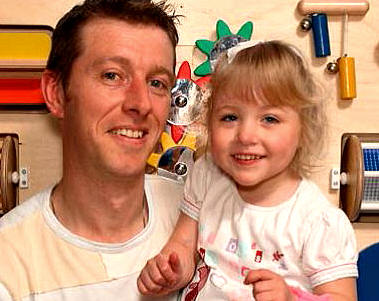New research alerts from HealthMatters Community Academic Partnership
 'Speaking up' for the person with ID was important to parent and support worker roles. Accessing quality health care was one of the main concerns as well as advocating across other areas to negotiate wider psychosocial needs. The role of advocating was viewed as multidimensional, depending if the advocate was a parent or support worker. Parental advocacy was driven by 'caring' while support worker advocacy was influenced by the 'duty of care.' Please read further here.
'Speaking up' for the person with ID was important to parent and support worker roles. Accessing quality health care was one of the main concerns as well as advocating across other areas to negotiate wider psychosocial needs. The role of advocating was viewed as multidimensional, depending if the advocate was a parent or support worker. Parental advocacy was driven by 'caring' while support worker advocacy was influenced by the 'duty of care.' Please read further here.
Adults with DD value being in research, especially research that can help them or others like them. They want to understand research, so they can make their own decision about participating or not. Researchers should do things such as include concrete descriptions, visuals, explanations, and demonstrations to help adults with DD understand. It is important for researchers to create and use research practices that help adults with DD control their research participation. Adults with DD want to learn about research from individuals they trust, select people they trust to provide input, and assess whether they can trust researchers in making participation decisions. Please read further here.
When Latino children with autism receive high quality care, they use more health care services. Using appropriate services improves children's well-being. Please read further here.
People with ID are more likely to be at risk from developing diabetes (both Type 1 and 2) as a result of having a genetic condition (i.e. Down syndrome) and leading a sedentary lifestyle (i.e. little exercise, poor nutrition, obesity, hypertension) respectively. Numbers of people with ID developing T2D will increase as they age. For over half of the people with ID their diabetes was poorly controlled. Please read further here.
HealthMatters Alerts: www.HealthMattersProgram.org


 Having a disabled child affects all members of a family. No matter if you are a new parent, or an experienced one – everyone can react in different ways to the news that their child has a disability or medical condition. As a father of a disabled child you will have to adapt to a new and sometimes challenging set of circumstances. This guide will help you learn more about practical information you may need and help you understand how other fathers have experienced having a disabled child. Guide
Having a disabled child affects all members of a family. No matter if you are a new parent, or an experienced one – everyone can react in different ways to the news that their child has a disability or medical condition. As a father of a disabled child you will have to adapt to a new and sometimes challenging set of circumstances. This guide will help you learn more about practical information you may need and help you understand how other fathers have experienced having a disabled child. Guide 